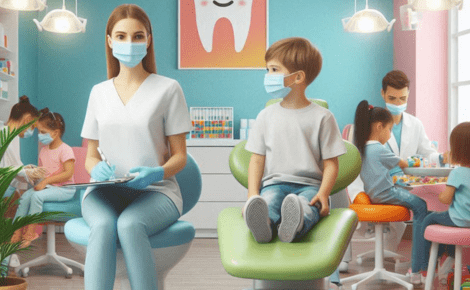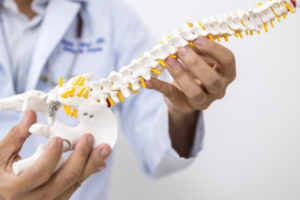Early dental care for children lays the foundation for a lifetime of healthy habits. Tooth decay is the most common chronic disease in children, but it is preventable. Regular visits to a dentist in Pleasanton, CA, can help detect and address issues before they become serious. It’s not just about preventing cavities. These visits teach children about the importance of oral hygiene and build comfort in a dental setting. Good habits formed early can prevent problems like gum disease and misalignment. Starting dental visits by the age of one helps in assessing the risk of decay and guiding parents on effective care. The American Academy of Pediatric Dentistry recommends these early visits to set a routine. Children learn better brushing techniques, understand the importance of flossing, and adapt to seeing a dentist as a positive experience. Early dental care is a small step with lasting benefits.
Why Start Early?
Starting dental care early is about more than just clinical treatment. It provides a chance to educate children on the significance of maintaining oral health. By the age of one, a child’s mouth is developing rapidly, and early visits help monitor this growth. This proactive approach aids in identifying potential problems early. According to the Centers for Disease Control and Prevention (CDC), early dental visits dramatically reduce the risk of cavities and promote healthy habits.
The Role of Parents
Parents play a crucial role in their child’s dental care. Establishing a routine at home reinforces what children learn during dental visits. Here are three simple practices to maintain at home:
- Brush teeth twice daily using fluoride toothpaste.
- Floss between teeth daily to remove hidden debris.
- Limit sugary snacks and drinks to prevent decay.
These habits, when started early, become second nature for children, leading to healthier smiles.
Comparing Early Dental Care Benefits
Understanding the benefits of early dental care is essential. Below is a comparison of children who begin dental care early versus those who do not:
| Aspect | Early Dental Care | Delayed Dental Care |
| Cavity Prevention | High chance of preventing cavities | Increased risk of cavities |
| Oral Hygiene Habits | Strong and consistent | Weak and inconsistent |
| Comfort in Dental Setting | High comfort and familiarity | Possible fear and anxiety |
| Overall Oral Health | Better oral health and alignment | Poorer oral health and possible misalignment |
Addressing Common Concerns
Many parents worry about the cost and necessity of early dental visits. However, investing in preventive care can save both money and discomfort down the road. Regular check-ups help ensure that any small issues are caught early. According to the American Academy of Pediatric Dentistry, these visits are essential in developing a comprehensive care plan tailored to the child’s needs.
Setting the Right Environment
Creating a positive experience at the dentist’s office can make a significant difference. Choose a dental practice that specializes in pediatric care. Such environments are designed to be welcoming and child-friendly. Dentists trained in pediatric care know how to make children feel at ease. This comfort builds trust and ensures that children are open to learning about oral health from a young age.
Looking to the Future
The habits and routines established in childhood carry over into adulthood. Children who start dental care early are more likely to continue these practices throughout their lives. This leads to fewer dental issues and a healthier lifestyle overall. Early dental care is not just a single step, but a continued journey towards lifelong oral health.
Conclusion
Early dental care for children is crucial. It sets the stage for a lifetime of healthy habits and prevents many common dental issues. By starting dental visits by age one, monitoring oral development, and teaching effective home care routines, we support children in achieving optimal oral health. These actions are small yet significant steps that have lasting impacts, benefiting not just the smile but overall well-being.















